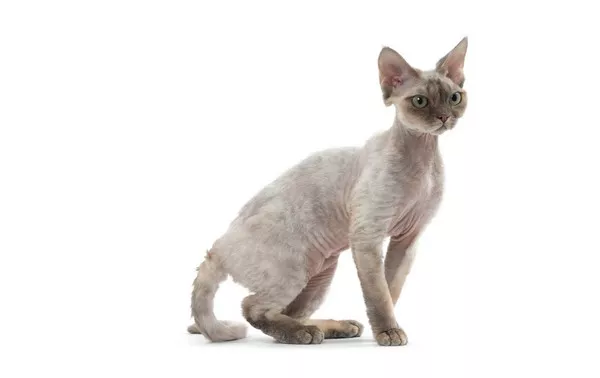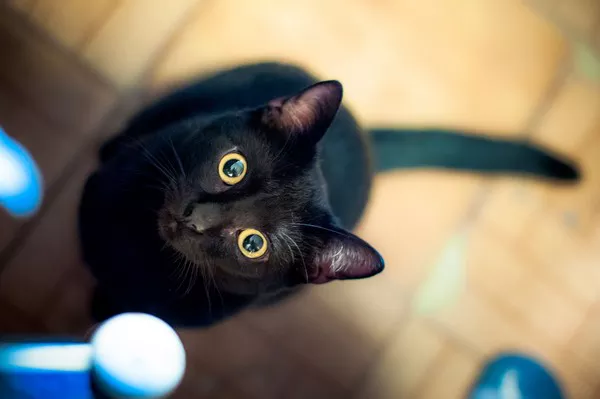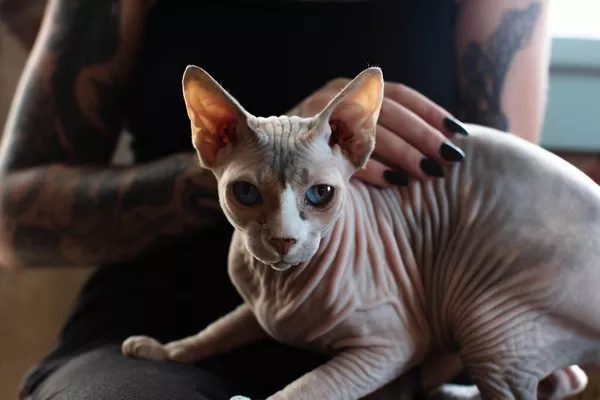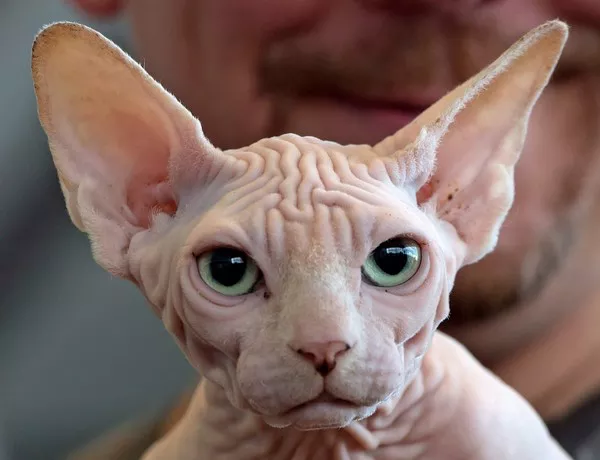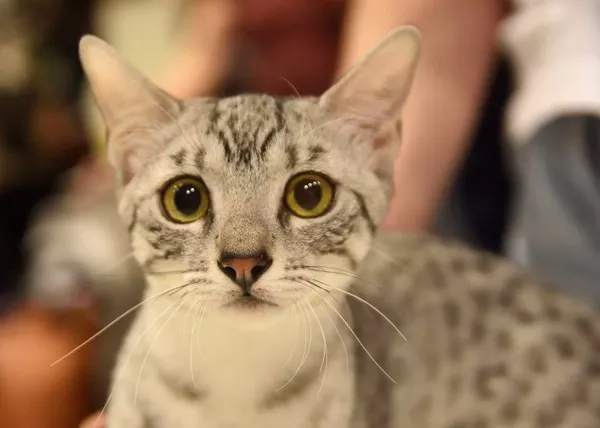Devon Rex cats are an enchanting and captivating feline breed known for their distinct appearance and playful personalities. With their large ears, wavy coats, and mesmerizing eyes, Devon Rex cats have won the hearts of cat enthusiasts worldwide. In this article, we explore the fascinating origins of the Devon Rex breed, tracing their lineage and uncovering the factors that contribute to their unique characteristics.
1. The Discovery of a Curious Kitten: Kirlee, the First Devon Rex
The Devon Rex breed originated in England during the 1960s with the accidental discovery of a unique kitten named Kirlee. In 1960, a woman named Beryl Cox found Kirlee, a curly-coated, elf-like kitten, in a tin mine in Devon, England. Struck by the kitten’s unusual appearance, Beryl Cox decided to take her home and named her Kirlee, after the place where she was found.
2. Serendipitous Breeding: Crossing Kirlee with Cornish Rex Cats
Beryl Cox, intrigued by Kirlee’s unique coat, decided to breed her with a male cat from the Cornish Rex breed, another curly-coated feline breed. This serendipitous breeding resulted in a litter of kittens, some of which inherited Kirlee’s distinctive curly fur. This accidental crossing laid the foundation for the development of the Devon Rex breed.
3. Genetic Mutation: The Source of the Curl
The characteristic wavy coat of the Devon Rex cat is a result of a spontaneous genetic mutation. This mutation affects the hair shaft’s structure, resulting in a unique curling pattern. While the specific genetic mutation responsible for the Devon Rex coat remains unidentified, it is believed to be different from the gene responsible for the Cornish Rex coat.
4. Early Recognition and Breed Establishment
Recognizing the potential of the Devon Rex breed, breeders and cat enthusiasts began working to establish and develop the breed further. In 1967, the breed was officially recognized by The International Cat Association (TICA), marking the Devon Rex’s entry into the world of cat breeding and shows.
5. Breeding and Genetics: A Delicate Balancing Act
Breeders of Devon Rex cats face a delicate balancing act between preserving the breed’s distinctive features and avoiding potential health issues associated with certain genetic mutations. Responsible breeders strive to maintain genetic diversity within the breed to reduce the risk of inherited health conditions. Additionally, careful breeding practices are employed to ensure the well-being and longevity of Devon Rex cats.
6. Appearance and Physical Characteristics: The Devon Rex Charm
Devon Rex cats are instantly recognizable due to their unique physical features, which set them apart from other breeds:
a. Wavy Coat: The Devon Rex’s most distinctive trait is its wavy or curly coat. The coat is soft, fine, and short, with tight curls present all over the body.
b. Large, Prominent Ears: Devon Rex cats have large ears that are set low on their heads, further enhancing their elf-like appearance.
c. Slender Body: They have a slender and elegant body structure, with long legs and a graceful gait.
d. Mesmerizing Eyes: Their large, captivating eyes are set at an angle, giving them an inquisitive and alert expression.
e. Whisker Pads and Nose Leather: Devon Rex cats often have prominent whisker pads and a leather-colored nose.
7. Personality Traits: Affectionate and Playful Companions
Beyond their unique appearance, Devon Rex cats are cherished for their loving and playful personalities. They are known for forming strong bonds with their human families and enjoy being involved in all aspects of their lives. Devon Rex cats are curious, intelligent, and often referred to as “poodles” due to their desire to interact and play with their human companions.
8. Grooming Needs: Caring for the Curly Coat
Despite their curly coats, Devon Rex cats require regular grooming to keep their fur in good condition. The texture of their fur can lead to oil buildup, so weekly bathing is recommended to maintain a clean and healthy coat. Additionally, their ears should be regularly checked and cleaned to prevent wax buildup.
9. Health Considerations: Watching for Potential Issues
While Devon Rex cats are generally healthy, responsible breeders focus on minimizing certain genetic health concerns that can occur in the breed. These include heart issues, dental problems, and skin conditions. Regular veterinary check-ups are essential to monitor their overall health and well-being.
Conclusion:
The enchanting Devon Rex cat breed originated from a serendipitous encounter in Devon, England, in the 1960s. Thanks to the curiosity and dedication of breeders and cat enthusiasts, the Devon Rex breed has grown in popularity, captivating hearts with its unique appearance and affectionate personality. The genetic mutation responsible for their curly coat remains a marvel, and responsible breeding practices aim to maintain the breed’s distinctive features while ensuring the health and well-being of these delightful feline companions. Devon Rex cats continue to charm their way into the homes and hearts of cat lovers worldwide, enriching lives with their playful antics and loving companionship.

